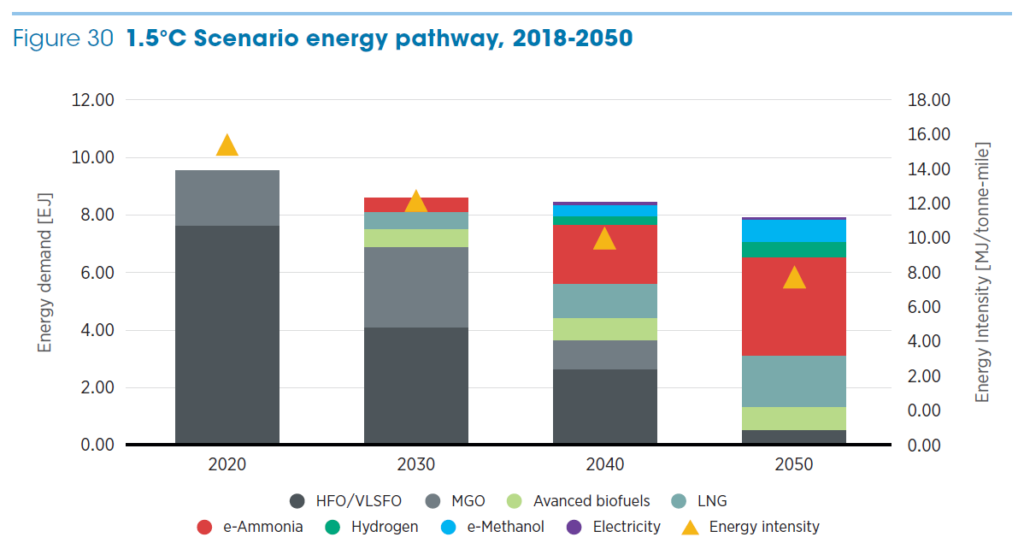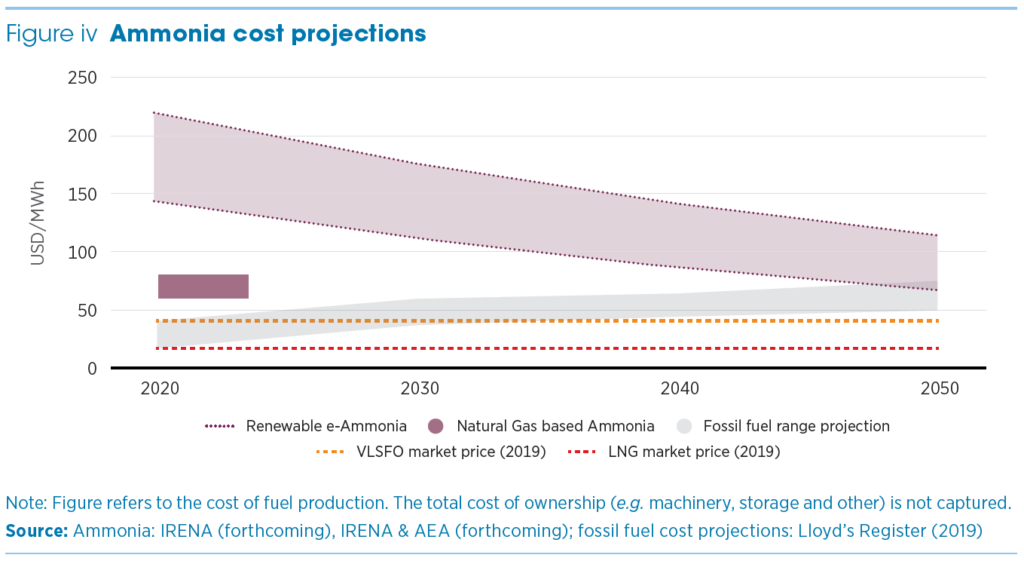New IRENA report: Decarbonising shipping by 2050
By Julian Atchison on October 26, 2021

IRENA’s new report explores the available options and actions needed en route to a decarbonised global shipping sector by 2050. This analysis for decarbonising shipping is aligned with IRENA’s World energy transitions outlook (2021), which sets out a pathway to limit global temperature rise to 1.5°C. A pivotal role is forecast for renewable ammonia, with 183 million tonnes per year (the current volume of annual global ammonia production) to be required by 2050 for maritime fuel.
Key messages
– In the short term, advanced biofuels will play a key role in the reduction of CO2 emissions. In the medium and long-term, green hydrogen-based fuels are set to be the backbone for the sector’s decarbonisation.
– While renewable fuels production costs are currently high, in the next decades renewable fuels will become cost competitive and can shield the shipping sector from the volatility that characterises the fossil fuels market.
– Taking early action is vital. Sector decarbonisation can be accelerated and ambition raised beyond the climate goals by fostering investment in the production of renewable fuels. Stakeholders need to develop broader business models and establish strategic partnerships involving energy-intensive industries, as well as power suppliers and the petrochemical sector.
A Pathway to Decarbonise the Shipping Sector by 2050 (2021), IRENA
Cost projections for renewable ammonia
E-ammonia looks set to be the backbone for decarbonising international shipping in the medium and long term. By 2050, production costs of e-ammonia are expected to be between USD 67-114/MWh. The validation of ammonia engine designs by 2023 will be a key milestone in unlocking the use of renewable ammonia. While ammonia is corrosive and highly toxic if inhaled in high concentrations, ammonia has been handled safely for over a century. Hence, ammonia’s toxicity and its safe handling should not be considered major barriers.
Summary for Policy Makers, A Pathway to Decarbonise the Shipping Sector by 2050 (2021), IRENA
